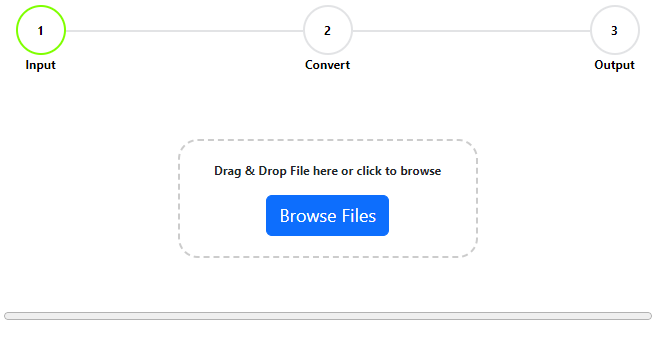A master’s degree demonstrates advanced knowledge of a specific topic, high-level analytical skills, critical evaluation and the ability to solve complex problems and work independently. A masters will enable you to narrow down your field of expertise and really hone in on a particular area or topic.
There are many factors that enhance your ability to find the work you want, but one of them is having a robust network of connections.
During a masters, you’ll have the ability to expand your professional network which will open up career opportunities for you once you’ve graduated. Postgraduate study programs are more autonomous, therefore they set you up to be more self-motivated and show more initiative in the workplace.
This could be one key reason many employers value applicants with a masters over those without. It’s also possible to move into a different career path or diversify, by taking on a masters in a new field, as many programs now allow students with a bachelor in a different area. Mostly though, doing a masters can improved your chances of getting that higher-paid position and career progression opportunities.
On the other hand, if you do not NEED a masters to get these things, which is sometimes the case. You could save yourself a lot of money by choosing not to do a masters. Ultimately, the question is, do you really need a masters for a career in GIS?
A Masters In GIS
Overall, you could say that you don’t need a masters for most GIS jobs. Much of the skill growth can be learned on the job or through additional courses. However, if you wish to advance towards team management, start your own company or become a recognized expert in your field it may be worth it.
Likewise, if you are aiming to work in academia, you’ll need a PhD and in connection a masters. If the area of GIS you want to work in is highly competitive, then as with other industries, having a masters will make you stand out from the rest.
Advantages of having a masters
- To advance in your career, for example into team management
- Be recognized as an expert in your field
- Makes you more competitive in the job market
- Leads onto a PhD if that’s the direction you want to go
- Higher salary potential
A Masters in GIS or another degree?
A masters is technically a way of specializing or focusing your skills, and as a result people will select a masters program that is similar to their undergraduate degree. However, if you want to diversify you could consider doing a different degree or post-graduate certificate rather than a masters.
Depending on the pre-requisites, it can be possible to study a masters degree in a completely different field. This might feel like a big risk but you’ll likely stand out among the competition.
Which masters degree?
Firstly, think about your goals, motivations and interests. Is your goal for doing a masters to move up into team management or is it specialize further in a particular area. Also consider what is your undergraduate degree in? If you did a standard geography degree that already included a large amount of GIS work, and you primarily want the masters degree to help you progress through the company into team leadership.
You could choose to combine your degree with a masters in business management. However, if you studied web design with an interest in cartography and science communication you may then be best placed to do a masters in GIS in order to really focus on your geospatial skills.
When you have narrowed down the shortlist of possible masters degrees, check the curriculum and decide if the course covers what you’re specifically interested in. You’ll also need to check you meet the pre-requisite requirements. This is particularly important if you’re doing a masters different to your undergraduate degree, you may not meet the requirements in all instances.
What skills and proficiencies can you develop through a GIS masters degree
Many GIS masters programs follow similar curriculum guidelines, but you could expect to graduate having developed and honed your skills in using GIS technology for a variety of uses. Overall, you will be able to use GIS to solve complex multi-dimensional, spatial problems. You are likely to also gain any of the following proficiencies at graduation:
- You should be able to implement a complex spatial IT solution from beginning to end, including on-going maintenance.
- Understand and be familiar with emerging technologies and approaches in GIS and technology management.
- Have a strong grasp of GIS project management, including understanding the legal, political and administrative aspects from the aspect of a public or private organization.
- Develop a working knowledge of managing a project budget involving GIS technology.
- Work effectively within a team to accomplish group tasks with peers, including communicating and managing stakeholder expectations and involvement in large GIS projects.
- Communicate project aims and objectives, as well as processes and methodology through written documents and presentations.
Do the GIS masters now, or postpone?
If having a masters is a requirement of the job you want, and you have the motivation and funds to carry on with study. By all means continue study. However, there’s really no reason you can’t postpone and come back to continue on and do a masters at a later date.
Reasons you might want to post-pone a GIS masters
People may choose to postpone doing their masters degree for a variety of reasons, but typically the main reasons are a combination of financial and experience based. By taking some time off to work for a while you can earn some money to top up the finances that have drained away whilst completing the undergraduate degree.
It can also be valuable to simply take some time off, refresh your brain and really think about your career goals. That being said if you know you’ll struggle to get motivated to study again after a significant break, then perhaps you shouldn’t postpone.
If you decide to think about it and get started building your career, pay attention to whether your employer will support further study. If your employer will subsidize further study, including time off this is an excellent perk to make the most of. You’ll get the benefits of having a masters without the financial burden and some flexibility combining work and study.
Can you study a masters in GIS online?
The short answer, yes. Open universities all around the world have jumped onto the demand for online courses, and they’re in plentiful supply. If a masters is in your sights but you can’t manage face-to-face classes, this could be a really convenient mode of study for you. However, consider the quality of the program on offer and the reputation of the entity or university providing the course. If the program doesn’t cover what you want and the qualification doesn’t hold enough weight, it may not be money well spent.
Decision time
Whether you decide to do a masters or not, or maybe you postpone, the opportunities for a career in GIS are endless. Your learning may not necessarily be limited by not having a masters, as there’s a lot you can learn independently and on the job. However, it’s often the case that you do need that official piece of paper to move up. Consider your ultimate aims and all the options available to you when making your choice.





